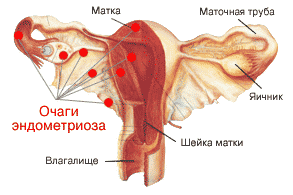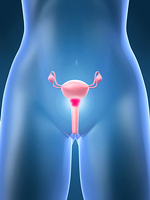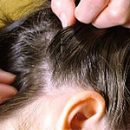The premenstrual syndrome (PMS) is the complex complex of symptoms arising from women in days preceding menstruation. PMS can manifest itself a number of neuropsychic, exchange-endocrine or vegetative-vascular disorders...
Content
What is PMS?
Every month 1-14 days before the start of menstruation, millions of women experience unpleasant sensations, the strength of which can vary from light ailment to real illness. It is swelling and increased sensitivity of the mammary glands, bloating, constipation, irritability, plasticity...
There may be pain in the heart, back, joints and in the whole body, elevated temperature, attacks of incomprehensible anxiety, persistently repeated Vidial bubble.
Vidial bubble.
In some women, the manifestation of premenstrual syndrome (PMS) becomes an attack of migraine headache. And all these troubles are combined in a variety of combinations. In some, they disappear with the beginning of menstruation, others - only with its ending.
Doctors gynecologists, specialists in this field say that there are about 150 symptoms of premenstrual syndrome (PMS), which, moreover, are found in different combinations.
However, the most common of them are as follows: a slight increase in body weight, pain in the area of the belt and in the pelvic organs, the bloating of the abdomen, nausea, flaws and painfulness of the mammary glands, increased fatigue, irritability, insomnia or, in some cases, on the contrary, excessive drowsiness.
Most young women say that in days preceding menstruation, they often experience not only physical, but also emotional and psychological discomfort. Many are experiencing an attacks of unreasonable aggression, inadequate behavioral reactions may be observed, a fastest change of moods.
At the same time, it is noted that some women unconsciously experience the fear of the onset of PMS and menstruation, and therefore they become even more irritable and closed, even before the onset of this period.
Four common form of PMS
First of the Forms of PMS - Nerivo-psychic, characterized by weakness, fusibility, depression, or, on the contrary, excessive and unreasonable irritability, aggression. And the latter, as a rule, prevails in young girls, while women a little older age are more often depressed and melancholy.
PMS It is a root, swelling and soreness of the mammary glands, the swelling of the face, legs and hands, sweating. In this form, the PMS is sharply expressed sensitivity to smells, it is possible to change the taste sensations.
The third form of PMS called Cephalgic. With this form of PMS, a woman is experiencing headaches, nausea, sometimes vomiting, dizziness. Approximately a third observed pain pain and an depressed psychological state.
And finally, the latter, the so-called Currency form of premenstrual syndrome (PMS) , manifests itself in the appearance of adrenaline crises, which begin with feelings of squeezing under the breast and are accompanied by a significantly rapid heartbeat, numbness and cooling hands and legs. Possible frequent and abundant urination.
The exact causes of the appearance of the PMS are not known, it is believed that it has a connection with the impaired balance between two women's hormones estrogen and progesterone. It is also known that the hormone progesterone cannot successfully bind to cell receptors at a low blood glucose level. Therefore, one of the options for reducing the effect of PMS on a female organism – This is nutrition.
Proper nutrition at PMS
Regular use of carbohydrates (complex carbohydrates) provides normal hormone grip of progesterone with cellular receptors. In one study, women with PMS used food containing a large amount of carbohydrates in the form of whole grain bread, rice and other cereals, dried fruits, fruits, the effect of declining PMS was observed in 50% of respondents, 20% felt some improvement, 19% completely got rid of the symptom.
Pay attention to other changes in the meal you need to be taken to reduce the PMS:
- Inclusion in your rations, seeds and sea fish fatty varieties, as Omega-3 fatty acids contribute to the improvement of the hormonal balance.
- Reducing the use of salt, as it favors the retention of moisture.
- Refusal of alcohol and caffeine to reduce irritability and depressiveness.
Vitamin Mineral Complexes. Various vitamin and mineral complexes contribute to the decrease in the effects of PMS, but, unfortunately, their effectiveness is also not high, and they need to take them in a cycle of three months. Vitamin and mineral complexes should include the following vitamins and minerals:
Magnesium. We are needed to stabilize blood sugar levels. Magnesium reduces the symptoms of irritability, anxiety, fatigue, headaches, reduces swelling. Mineral also acts as a muscular relaxant. Interacting with vitamin B6, it helps, reduce negative effects from excess hormone estrogen; Interacting with zinc, regulates the process of formation by sex hormones of some genes.
Vitamin B6. In addition to the above affects the decrease in irritability and other emotional symptoms, as well as weakness and dizziness.
Vitamin D and calcium Reduce headaches, puffiness, positively affect the emotional level.









